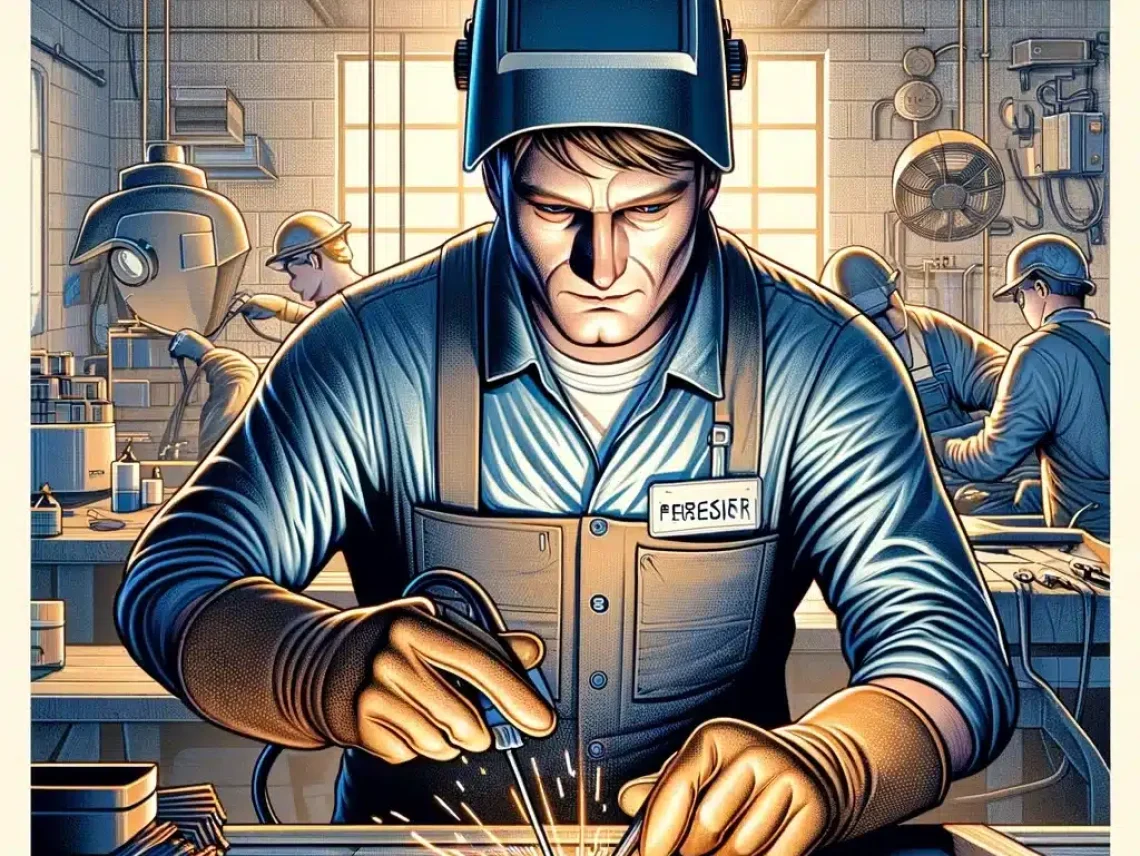
Table of Contents
ToggleWelding is more than a job—it’s a craft that demands a unique blend of skills and personality traits. Whether you’re interested in starting a welding career or hiring your next team member, understanding the personality traits of a welder is crucial. From attention to detail to adaptability, these characteristics not only impact job performance but also influence safety, job satisfaction, and long-term career growth. In this comprehensive guide, we’ll explore the top traits every welder should develop, why they matter, and how you can cultivate them to thrive in the welding industry.
The most successful welders possess a specific combination of personal attributes that go beyond technical skills. According to industry research and leading organizations, here are the top 10 personality traits of a welder:
Attention to Detail: Precision is the foundation of quality welding. Small mistakes can lead to significant safety risks and structural problems, making this trait critical.
Strong Work Ethic: Welding often involves long hours and challenging conditions. A committed attitude ensures consistent, reliable work and professional growth.
Adaptability: Welding environments change frequently. Welders must quickly adjust to new materials, processes, and safety protocols. Learn more about the physical demands of a welding career.
Problem-Solving Skills: Unexpected challenges are routine in welding. Quick thinking and innovative solutions help keep projects on track.
Patience: Mastery in welding doesn’t happen overnight. Staying focused during repetitive or complex tasks is essential.
Teamwork: Welders often collaborate with engineers, inspectors, and other professionals. Strong interpersonal skills are key to success.
Communication: Clear communication prevents errors and enhances job safety. Effective welders explain technical issues simply and accurately.
Physical & Mental Stamina: Endurance is required for both the body and mind. Learn about long-term effects of welding.
Safety Awareness: A safety-first mindset is vital. Welders must always be vigilant about potential hazards and industry best practices, following guidance from authorities like OSHA.
Continuous Learning: Technologies and standards evolve, so welders must stay up to date through training, certifications, and curiosity. Wikipedia offers more about professional certification processes.
The personality traits of a welder directly affect productivity, safety, and overall job satisfaction. For example, attention to detail reduces rework and increases quality. Strong work ethic and adaptability drive project efficiency, while excellent communication and teamwork foster positive work environments. These soft skills are just as important as technical expertise and are often the deciding factor in hiring and career advancement.
Welders who continuously expand their skill sets and stay physically prepared are more likely to enjoy higher wages and safer work environments. Curious about financial rewards? Explore the financial rewards of a career in welding.
The journey to becoming a great welder starts with developing the right personality traits. Whether you’re just starting or seeking to advance your career, focusing on these qualities will set you apart and pave the way for a long, rewarding future in welding.
Red River is committed to helping welders reach their highest potential. If you’re ready to take your welding career to the next level or want to learn more about the most challenging and easiest welding positions, check out these helpful resources:
If you have questions or want guidance from industry experts, contact Red River today.
The most important traits are attention to detail, adaptability, strong work ethic, problem-solving, safety awareness, and communication skills
Because even minor errors can lead to safety hazards or equipment failure, attention to detail ensures quality and reduces risk.
Adaptability allows welders to adjust to new materials, positions, or environments—key for long-term success as technology and standards evolve.
Absolutely. Most welding jobs require collaboration with others, and teamwork skills improve project outcomes and workplace safety.
Yes. Employers value soft skills just as much as technical ability. Traits like strong work ethic and continuous learning lead to more opportunities and higher pay.
Through ongoing training, mentorship, and a willingness to learn from mistakes. Staying physically and mentally healthy is also essential.
Yes. Lack of attention or poor safety awareness can result in accidents, while poor communication can cause costly errors.
Check out resources from Wikipedia on welding and OSHA for standards and safety protocols.
Attention to detail and adaptability are must-have traits for welders.
Soft skills are just as important as technical welding ability.
Safety awareness protects welders and improves job outcomes.
Communication and teamwork make every project more successful.
Continuous learning is essential for career longevity and advancement.
Red River offers expert resources and support for welders at every stage.
In the realm of industrial solutions, Red River emerges as a pioneer, offering a diverse range of custom-engineered products and facilities. Among our specialties is the design and production of Custom/OEM Pressure Vessels, meticulously crafted to meet individual client requirements, ensuring performance under various pressure conditions. Our expertise extends to the domain of prefabrication, where Red River leads with distinction.
The company excels in creating prefabricated facilities, modules, and packages, reinforcing its stance as a forerunner in innovation and quality. This proficiency is further mirrored in their Modular Skids offering, where they provide an array of Modular Fabricated Skid Packages and Packaged equipment. Each piece is tailored to client specifications, underlining their commitment to delivering precision and excellence in every project they undertake.